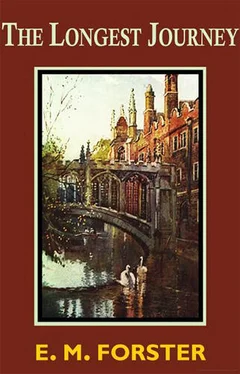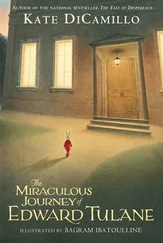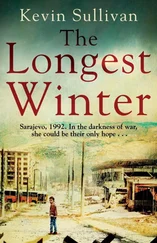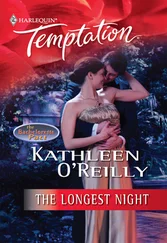Edward Forster - The Longest Journey
Здесь есть возможность читать онлайн «Edward Forster - The Longest Journey» весь текст электронной книги совершенно бесплатно (целиком полную версию без сокращений). В некоторых случаях можно слушать аудио, скачать через торрент в формате fb2 и присутствует краткое содержание. Жанр: Классическая проза, на английском языке. Описание произведения, (предисловие) а так же отзывы посетителей доступны на портале библиотеки ЛибКат.
- Название:The Longest Journey
- Автор:
- Жанр:
- Год:неизвестен
- ISBN:нет данных
- Рейтинг книги:5 / 5. Голосов: 1
-
Избранное:Добавить в избранное
- Отзывы:
-
Ваша оценка:
- 100
- 1
- 2
- 3
- 4
- 5
The Longest Journey: краткое содержание, описание и аннотация
Предлагаем к чтению аннотацию, описание, краткое содержание или предисловие (зависит от того, что написал сам автор книги «The Longest Journey»). Если вы не нашли необходимую информацию о книге — напишите в комментариях, мы постараемся отыскать её.
The Longest Journey — читать онлайн бесплатно полную книгу (весь текст) целиком
Ниже представлен текст книги, разбитый по страницам. Система сохранения места последней прочитанной страницы, позволяет с удобством читать онлайн бесплатно книгу «The Longest Journey», без необходимости каждый раз заново искать на чём Вы остановились. Поставьте закладку, и сможете в любой момент перейти на страницу, на которой закончили чтение.
Интервал:
Закладка:
"Yes," said a man's voice; "it's the old plan." They were in another valley. Its sides were thick with trees. Down it ran another stream and another road: it, too, sheltered a string of villages. But all was richer, larger, and more beautiful—the valley of the Avon below Amesbury.
"I've been asleep!" said Rickie, in awestruck tones.
"Never!" said the other facetiously. "Pleasant dreams?"
"Perhaps—I'm really tired of apologizing to you. How long have you been holding me on?"
"All in the day's work." He gave him back the reins.
"Where's that round hill?"
"Gone where the good niggers go. I want a drink."
This is Nature's joke in Wiltshire—her one joke. You toil on windy slopes, and feel very primeval. You are miles from your fellows, and lo! a little valley full of elms and cottages. Before Rickie had waked up to it, they had stopped by a thatched public-house, and Stephen was yelling like a maniac for beer.
There was no occasion to yell. He was not very thirsty, and they were quite ready to serve him. Nor need he have drunk in the saddle, with the air of a warrior who carries important dispatches and has not the time to dismount. A real soldier, bound on a similar errand, rode up to the inn, and Stephen feared that he would yell louder, and was hostile. But they made friends and treated each other, and slanged the proprietor and ragged the pretty girls; while Rickie, as each wave of vulgarity burst over him, sunk his head lower and lower, and wished that the earth would swallow him up. He was only used to Cambridge, and to a very small corner of that. He and his friends there believed in free speech. But they spoke freely about generalities. They were scientific and philosophic. They would have shrunk from the empirical freedom that results from a little beer.
That was what annoyed him as he rode down the new valley with two chattering companions. He was more skilled than they were in the principles of human existence, but he was not so indecently familiar with the examples. A sordid village scandal—such as Stephen described as a huge joke—sprang from certain defects in human nature, with which he was theoretically acquainted. But the example! He blushed at it like a maiden lady, in spite of its having a parallel in a beautiful idyll of Theocritus. Was experience going to be such a splendid thing after all? Were the outside of houses so very beautiful?
"That's spicy!" the soldier was saying. "Got any more like that?"
"I'se got a pome," said Stephen, and drew a piece of paper from his pocket. The valley had broadened. Old Sarum rose before them, ugly and majestic.
"Write this yourself?" he asked, chuckling.
"Rather," said Stephen, lowering his head and kissing Aeneas between the ears.
"But who's old Em'ly?" Rickie winced and frowned.
"Now you're asking.
"Old Em'ly she limps, And as—"
"I am so tired," said Rickie. Why should he stand it any longer?
He would go home to the woman he loved. "Do you mind if I give up Salisbury?"
"But we've seen nothing!" cried Stephen.
"I shouldn't enjoy anything, I am so absurdly tired."
"Left turn, then—all in the day's work." He bit at his moustache angrily.
"Good gracious me, man!—of course I'm going back alone. I'm not going to spoil your day. How could you think it of me?"
Stephen gave a loud sigh of relief. "If you do want to go home, here's your whip. Don't fall off. Say to her you wanted it, or there might be ructions."
"Certainly. Thank you for your kind care of me."
"'Old Em'ly she limps, And as—'"
Soon he was out of earshot. Soon they were lost to view. Soon they were out of his thoughts. He forgot the coarseness and the drinking and the ingratitude. A few months ago he would not have forgotten so quickly, and he might also have detected something else. But a lover is dogmatic. To him the world shall be beautiful and pure. When it is not, he ignores it.
"He's not tired," said Stephen to the soldier; "he wants his girl." And they winked at each other, and cracked jokes over the eternal comedy of love. They asked each other if they'd let a girl spoil a morning's ride. They both exhibited a profound cynicism. Stephen, who was quite without ballast, described the household at Cadover: he should say that Rickie would find Miss Pembroke kissing the footman.
"I say the footman's kissing old Em'ly."
"Jolly day," said Stephen. His voice was suddenly constrained. He was not sure whether he liked the soldier after all, nor whether he had been wise in showing him his compositions.
"'Old Em'ly she limps, And as—'"
"All right, Thomas. That'll do."
"Old Em'ly—'"
"I wish you'd dry up, like a good fellow. This is the lady's horse, you know, hang it, after all."
"In-deed!"
"Don't you see—when a fellow's on a horse, he can't let another fellow—kind of—don't you know?"
The man did know. "There's sense in that." he said approvingly. Peace was restored, and they would have reached Salisbury if they had not had some more beer. It unloosed the soldier's fancies, and again he spoke of old Em'ly, and recited the poem, with Aristophanic variations.
"Jolly day," repeated Stephen, with a straightening of the eyebrows and a quick glance at the other's body. He then warned him against the variations. In consequence he was accused of being a member of the Y.M.C.A. His blood boiled at this. He refuted the charge, and became great friends with the soldier, for the third time.
"Any objection to 'Saucy Mr. and Mrs. Tackleton'?"
"Rather not."
The soldier sang "Saucy Mr. and Mrs. Tackleton." It is really a work for two voices, most of the sauciness disappearing when taken as a solo. Nor is Mrs. Tackleton's name Em'lv.
"I call it a jolly rotten song," said Stephen crossly. "I won't stand being got at."
"P'r'aps y'like therold song. Lishen.
"'Of all the gulls that arsshmart,
There's none line pretty—Em'ly;
For she's the darling of merart'"
"Now, that's wrong." He rode up close to the singer.
"Shright."
"'Tisn't."
"It's as my mother taught me."
"I don't care."
"I'll not alter from mother's way."
Stephen was baffled. Then he said, "How does your mother make it rhyme?"
"Wot?"
"Squat. You're an ass, and I'm not. Poems want rhymes. 'Alley' comes next line."
He said "alley" was—welcome to come if it liked.
"It can't. You want Sally. Sally—alley. Em'ly-alley doesn't do."
"Emily-femily!" cried the soldier, with an inspiration that was not his when sober. "My mother taught me femily.
"'For she's the darling of merart, And she lives in my femily.'"
"Well, you'd best be careful, Thomas, and your mother too."
"Your mother's no better than she should be," said Thomas vaguely.
"Do you think I haven't heard that before?" retorted the boy. The other concluded he might now say anything. So he might—the name of old Emily excepted. Stephen cared little about his benefactress's honour, but a great deal about his own. He had made Mrs. Failing into a test. For the moment he would die for her, as a knight would die for a glove. He is not to be distinguished from a hero.
Old Sarum was passed. They approached the most beautiful spire in the world. "Lord! another of these large churches!" said the soldier. Unfriendly to Gothic, he lifted both hands to his nose, and declared that old Em'ly was buried there. He lay in the mud. His horse trotted back towards Amesbury, Stephen had twisted him out of the saddle.
"I've done him!" he yelled, though no one was there to hear. He rose up in his stirrups and shouted with joy. He flung his arms round Aeneas's neck. The elderly horse understood, capered, and bolted. It was a centaur that dashed into Salisbury and scattered the people. In the stable he would not dismount. "I've done him!" he yelled to the ostlers—apathetic men. Stretching upwards, he clung to a beam. Aeneas moved on and he was left hanging. Greatly did he incommode them by his exercises. He pulled up, he circled, he kicked the other customers. At last he fell to the earth, deliciously fatigued. His body worried him no longer.
Читать дальшеИнтервал:
Закладка:
Похожие книги на «The Longest Journey»
Представляем Вашему вниманию похожие книги на «The Longest Journey» списком для выбора. Мы отобрали схожую по названию и смыслу литературу в надежде предоставить читателям больше вариантов отыскать новые, интересные, ещё непрочитанные произведения.
Обсуждение, отзывы о книге «The Longest Journey» и просто собственные мнения читателей. Оставьте ваши комментарии, напишите, что Вы думаете о произведении, его смысле или главных героях. Укажите что конкретно понравилось, а что нет, и почему Вы так считаете.












